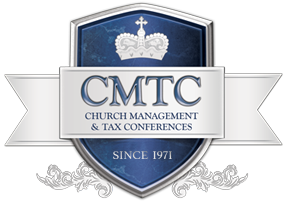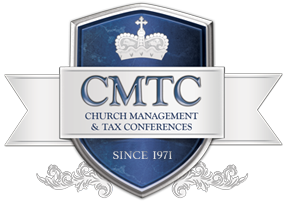Are Contributions Made to You
Protected as Tax Deductible
Not all, but many who make charitable contributions do so with intentions of claiming them as deductions on their tax returns. For any donation to be accepted as a tax-deduction, the Church is tasked with a responsibility to ensure those contributions are proper and that the Church could receive the donations as tax-exempt.
The Internal Revenue Service lists qualifying organizations in Publication 78, but unfortunately not all Churches are listed within its pages. Some feel that a Church is automatically exempt simply because it is a Church. Although section 170 of the Internal Revenue Code states that donations to Churches are tax-deductible and therefore many Churches do not file for their own 501(c)(3) because of one statement in section 508(c)(1)(a). This section does state that Churches do not have to APPLY for 501(c)(3) status. However, according to the Taylor vs. The Commissioner case, the Court ruled that section 508(c)(1)(a) only relieves Churches from applying for a favorable determination letter regarding their exempt status, but it does not relieve a Church from having to meet the requirements of section 501(c)(3).
Although it relieves the Church from applying for the favorable determination letter, that Letter of Determination is the “Proof Document” that allows all donations to the Church to be tax deductible. Remember, the allowance of a tax deduction for any gift is solely at the discretion of the IRS (Jack Taylor vs The Commissioner). Jack Taylor’s Church did not have a Determination Letter and the Judge ruled that neither Mr. Taylor, nor the Church proved his organization was a Church (even though they were conducting regular worship services). None of Mr. Taylor’s donations (several thousands of dollars) were allowed and resulted in him paying more taxes, and penalties and interest.
Another case of interest is the District of Columbia Appeals Court Ruling in the case of Branch Ministries and Pastor David Little vs The Commissioner, the District of Columbia Court of Appeals ruled against Branch Ministries.
The IRS revoked the (501)(c)(3) status of Branch Ministries (a Church) which resulted in an unsuccessful suit against the IRS. The Church also lost on appeal. Below are some excerpts of the Appellate Court’s decision:
The Code, in short, specifically states that organizations that fail to comply with the restrictions set forth in section 501(c) are not qualified to receive the tax exemption that it provides. Having satisfied ourselves that the IRS had the statutory authority to revoke the Church’s tax-exempt status, we now turn to the free exercise challenges. . .
Herein, lies the problem. A contribution to a Church that is not an official 501(c)(3) may never be called into question by the IRS. However, if it is, the donor must prove that the “Church” is in fact a Church to the acceptance of the IRS. Remember the above case of Taylor vs The Commissioner; the Judge ruled that neither Mr. Taylor, nor the Church proved his organization was a Church (even though they were conducting regular worship services).
Unless a Church is officially listed in Publication 78 and an IRS Determination Letter is awarded, all donations are subject to scrutiny and possible denial by the IRS. This is why every Church must register for 501(c)(3) status – not because the IRS demands it, but to protect the donations made to it.
There Are Rules Attached to Contributions
There are limits to the amount of contributions a taxpayer may deduct. Most contributions are limited to 50% of adjusted gross income. If it is capital-gain property, the limit is 30%. Contributions to private foundations and certain other organizations are limited to 30%, while capital-gain property to them is limited to 20%.
Any taxpayer that incurs out-of-pocket expenses on behalf of the Church may deduct the cost of those expenses. However, volunteers cannot deduct the value of their time or services rendered on the Church’s behalf.
The donor and donee should take extra precaution with noncash donations. The Church cannot assess a value to the contribution. This responsibility is solely that of the donor.
If automobiles, boats, or airplanes are given, there are rules the IRS has put in place to stop taxpayers from claiming a value far in excess of the actual value of the vehicle. When a vehicle is donated, if the Church sells the vehicle, the donor may only deduct the amount for which the item was sold. If the Church keeps the vehicle to use to further its exempt purpose, or donate it to a needy family, the taxpayer may deduct the fair market value. The Church must provide the donor with a 1098-C within 30 days of the sale of the vehicle, or within 30 days if the Church keeps the donated vehicle. Much information must be included on the 1098-C. Contact Chitwood and Chitwood at 800-344-0076 for information on the proper preparation and filing of this form. Failure to file it correctly may result in penalties for the Church.
If there are goods or services received as a result of the donation, other than non-tangible spiritual benefits, or education, the donation is not tax-deductible unless the token gift received is $9.10 or less for contributions of $45.50 or more in a given year.
If a volunteer incurs out-of-pocket expenses that exceed $250.00 in the performance of duties for a single event for the Church, the Church is to acknowledge that expenditure with a letter to the effect that the expense was incurred by the volunteer on behalf of the Church. The letter can only acknowledge the volunteer’s participation. It cannot assign a dollar value. Let me remind the reader that one’s services are not deductible!
Contributions Made to an Individual
If a donor makes a gift to someone within the Church, the individual does not get a tax-deduction for that contribution, neither does the one receiving the gift report it, because the contribution did not occur through the Church.
The Pastor cannot receive gifts from the Congregation in lieu of a salary. The IRS would rule that such a gift was disguised as compensation and would be taxable. This applies only in cases when the Pastor has rendered no special services for the member.
Virtual Money
Virtual currency such as Bitcoins, are a type of unregulated, digital money. Federal guidelines do not recognize this as cash for purposes of charitable contributions and therefore is treated as a noncash gift.
In Conclusion
This blog is just a small sample of the precautions which should govern contributions. This is why Churches should outsource to Chitwood and Chitwood! As the ultimate authority in Church and Clergy Tax issues, all of our staff are highly trained and motivated to ensure the protection of the Church and its contributors.
Just because the section on Schedule A for charitable contributions seems simple and straightforward, there are exceptions and what seems simple can become complicated. At Chitwood and Chitwood we know the details of charitable contributions that are necessary so that the maximum deductions for those contributions may be obtained. Contact us at 800-344-0076.
Do not trust just anyone – trust the best!

